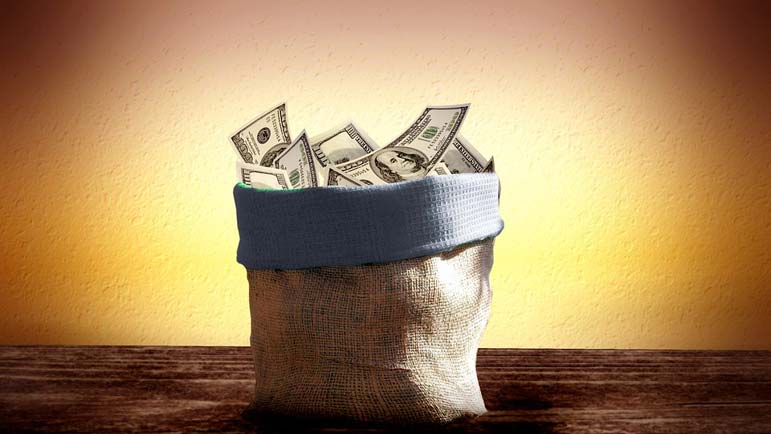
Israel is riding a string of good economic news lately, including credit upgrades by S&P Global Ratings and Moody's Investor Service. But the purchase of SodaStream by Pepsico for $3.2 billion is viewed by many Israelis as a moral victory.
SodaStream is the most famous economic target of a Palestinian organization known as Boycott, Disinvestment and Sanctions (BDS). The group's goal is to turn Israel into an international pariah among investors and tourists. Overall, it hasn't had much luck. Occasionally, BDS pressure results in a second-tier performing artist cancelling a show in Tel Aviv. It frightens Hillel directors on American college campuses and energizes anti-boycott fundraisers, but that's mainly small beer.
It also hasn't been able to do much to ruin the Israeli economy. The group's website features a recent decision by the catering department of Manchester University to remove Israeli-made Sabra hummus from the cafeteria. This is BDS's idea of a "great victory."
Still, every cause has its great shining moment. For BDS it came in 2014, when it succeeded in delivering a humiliating defeat to SodaStream. Alas, it proved to be a brief and Pyrrhic victory.
The campaign began in 2005, at the start of the BDS movement, and gained steam over the next decade. The casus belli was SodaStream's decision to locate its main manufacturing facility in Mishor Adumim, an Israeli-built industrial zone in the West Bank, about 10 miles from Jerusalem.
At the time, the company produced home dispensers for carbonated water along with flavored syrups. The idea caught on, business was good and SodaStream International Ltd went public on the Nasdaq in 2010. As the stock took off, the company grew. By 2014 it had more than 500 workers, making it one of the biggest employers of Palestinians in the West Bank.
That year, at the Super Bowl, the company took a big marketing step. In a bold (and very expensive) Super Bowl ad it pitched itself as an alternative to the soft-drink big powers. Actress Scarlett Johansson stared into the camera took a long sip of Soda Stream and cooed, "Sorry, Coke and Pepsi."
While the ad generated media buzz, it didn't do much for SodaStream's floundering sales. But Johansson paid a price as well: Oxfam dismissed her as a goodwill ambassador. But it was her unapologetic statement describing SodaStream as committed to "building a bridge to peace and equal rights" that put BDS on the warpath.
The group is a fervent supporter of the Palestinian "right of return," the principle by which Palestinians whose families left Israel in 1947 and 1948 believe they should be allowed to return. For Israelis, of course, the demands is merely a euphemism for the replacement of Israel with an Arab-majority state.
The Scarlett affair gave BDS global publicity for the first time, which it leveraged into a campaign of intimidation directed at European retailers, many of which, bowed to the pressure and boycotted Israel. In 2015, the European Union, ignoring an appeal from Prime Minister Benjamin Netanyahu and other Israeli officials, issued new guidelines for the labelling of products from the Israeli settlements. Though it only impacted a tiny share of Israeli-EU trade, the symbolism infuriated Israelis.
If SodaStream had been in better shape, it might have resisted the challenge. Instead, it moved out of the West Bank to a new plant in the Negev; SodaStream's CEO said the move was prompted by the need for more space. This left nearly 500 Palestinians without jobs. SodaStream said it tried to bring about 350 of the existing workers to Israel, but couldn't get the required permits for them. In the end, it replaced the workers with Israeli Arabs, including many formerly nomadic Bedouin. Business picked up and the company's payroll shot up to 1,400.
Four years later, SodaStream is still high on the BDS hit list. But Pepsico, which until the early '90s respected the Arab League boycott of Israel, is not cowed. In a press conference, the company's CEO, Ramon Laguarta, sprinkled some virtue pixie dust on SodaStream. Our company, he said, "values diversity." More important, he vowed that SodaStream would stay put for at least another 15 years.
Prime Minister Netanyahu welcomed the deal as a further demonstration of Israel's business-friendly policies. The government has already approved a new plant that will provide hundreds of new jobs. It's a win for Israel, for the Bedouin employees, and for SodaStream shareholders. (Even Johannsen has reason to be happy: She is no longer a goodwill ambassador for Oxfam, an organization presently trying to explain its way out of a very nasty predatory sex scandal in Haiti.)
Only the unemployed workers of West Bank SodaStream are not happy. They are, as usual, collateral damage in the endless, and endlessly self-defeating, Palestinian refusal to focus on the achievable objectives.
Previously:
• 07/23/18: Israel's Left bit Bibi's bait --- yet again
• 07/23/18: Why Israel got the biggest win from Helsinki
• 06/27/18: Trump's new deal for the Middle East
• 06/04/18: Israel's Golan annexation deserves US recognition
• 04/20/18: Israel's survival through iron will and an iron wall
• 04/03/18: Israeli voters help Netanyahu defuse ethics inquiry
• 02/28/18: How Billy Graham made Israel kosher to evangelicals
• 02/07/18: Israel's immigration crisis is a lesson for Trump
• 01/29/18: What Pence's 'worthless' trip reveals
• 11/27/17: Look to Israel for a playbook on dealing with North Korea
• 11/27/17: Why Israel will dictate any terms of a 'peace deal'. And why the 'Palestinians' will have no choice but to accept them
Chafets is a journalist and author of 14 books. He was a senior aide to Israeli Prime Minister Menachem Begin and the founding managing editor of the Jerusalem Report Magazine.


 Contact The Editor
Contact The Editor
 Articles By This Author
Articles By This Author